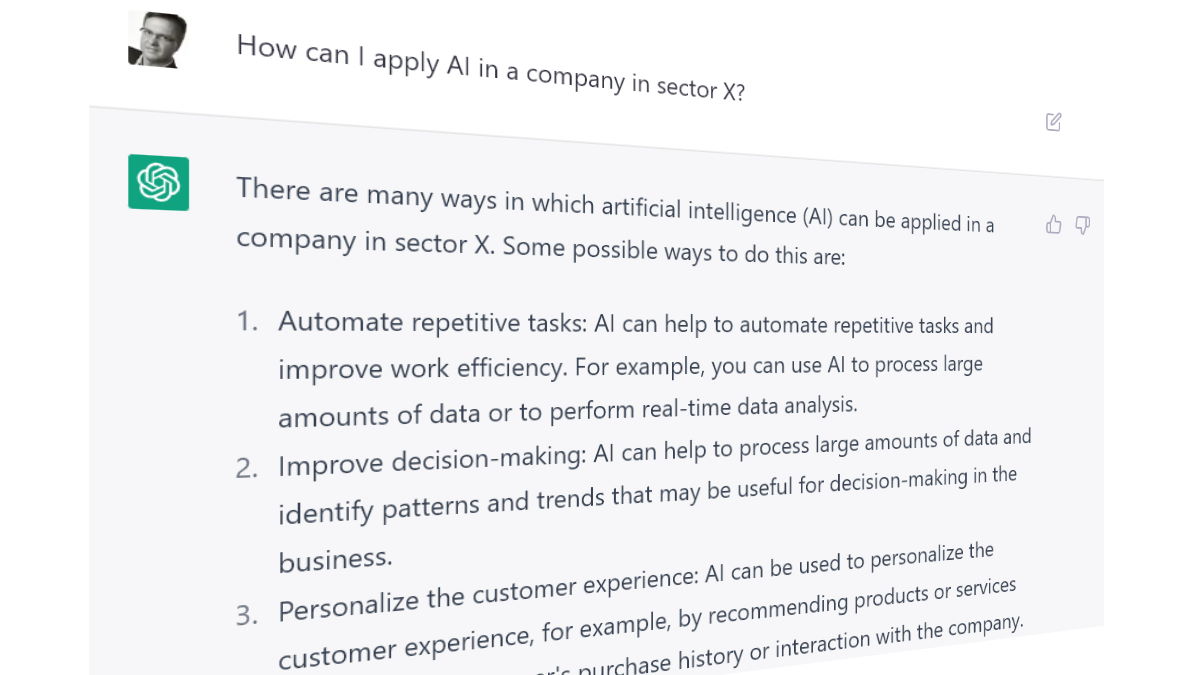What do we humans do the first time we have a conversation with an artificial intelligence that comes within our reach?
I don’t think I’m the only one who, within two minutes, is already trying to get it wrong and put it on the spot and have a few laughs with friends by making a fool of it.
That, in my opinion, says a lot about “Natural Intelligence”.
Years and years of research to have that first conversation with a non-human intelligence.
The next step is to think about how to put up barriers to Artificial Intelligence.
Lest it remembers our first conversation and decides to take revenge.
That, more or less, was the introduction of one of the blocks of the “Balearic Artificial Intelligence ecosystem meeting” that was held recently.
First meeting. Let’s hope there will be many.
Because the truth is that this event, organised by the Cercle d’Economia de Mallorca, attracted a lot of interest.
And many relevant people from Mallorca in this field. Both researchers, innovators who apply it in business and psychologists and lawyers.
Precisely that block, dedicated to the impact of AI on society, focused on possible legal and ethical problems that may arise.
And, certainly, the implications can be many.
Both positive and negative.
And this is where catastrophic films have done a lot of damage.
2001. Minority Report. Terminator. And even the Matrix and Her.
The dystopian vision of the world and technology sells a lot.
The issue is that now it’s not so “futuristic”. It’s something we’re starting to be able to touch.
I’ve always been a big fan of science fiction.
And I’m convinced that it’s had a big influence on me being a technophile.
I am, more or less, aware of the risks that technology can create.
(I’m sure I have a biased view, I know).
But I am convinced that the advantages and the good use of them bring much more to society.
And, in addition to movies, it is true that tech companies are not far behind in giving arguments to technophobes.
Cambridge Analytica, AggregateIQ, TargetPoint Consulting, Deep Root Analytics, Dataminr.
The list of companies that have used, without consent, personal information collected from social networks to do business, run commercial campaigns or even influence votes is growing.
Even if there are laws.
Even if there are exorbitant fines.
The profit is well worth the risk.
Without laws, this would be a digital Wild West.
Whoever is better armed wins.
But with too many laws, where everyone is a priori guilty and has to prove their innocence, we will kill innovation.
Small businesses won’t even be able to consider starting an initiative.
Europe always stands out as the champion of its citizens’ rights.
(Or at least that’s how they sell it to us).
But, as a technophile, I was pleased to hear a comment from a government official who recognised that a balance needs to be struck.
To guarantee the protection of rights without blocking technological innovation.
Because the truth is that these inventions that reach society.
Whether they are called Siri or Alexa or Google Assistant or ChatGPT.
These inventions are not European.
Falling behind on this path means losing a lot of relevance.
And a lot of potential to create welfare for all.
Be that as it may, for technophiles and technophobes alike, AI is here.
And it is making a breakthrough in the business world.
It’s not “going to be”.
It’s already happening.
And companies are already starting to be mostly aware of it.
In just over a month, I have participated in several brainstorming sessions to explore how to put the possibilities of AI into practice by improving business processes.
From automating tasks that were not possible before, to assisting content creators for real estate companies or improving the customer experience in tourism companies.
If you still don’t know if it is feasible in your sector, in your company, we can talk about it.
